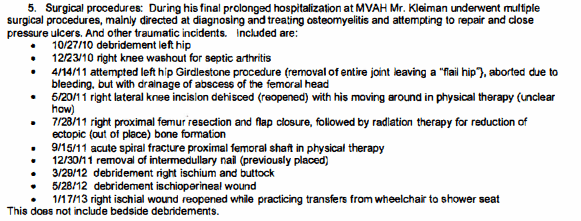Day 12 of the Kleiman v Wright trial paints a clearer picture of David Kleiman’s physical condition a few years before his death. His brother, Ira Kleiman, is now representing David Kleiman’s estate in this lawsuit that may be worth up to half of about $65 billion.
Ira Kleiman is alleging that computer scientist Craig Wright and David Kleiman were partners in writing the Bitcoin white paper under the pseudonym Satoshi Nakamoto and were business partners in W&K Info Defense Research, LLC through which they mined 1.1 million Bitcoin together, now valued at about $65 billion.
The defense’s argument lies in the fact that there is no evidence of a business partnership between Wright and David Kleiman that is related to mining said coins and that Wright is the sole author of the Bitcoin white paper published on October 31, 2008.
In his earlier testimony for the plaintiff, Wright clarified that while David Kleiman provided Wright with indispensable moral support that made him not give up on creating Bitcoin even at the expense of his marriage and edited the white paper, David Kleiman did not contribute to the conceptualization and the mining of what is dubbed as the “Satoshi coins.”
It is now the second full day of the defense presenting their case to the court, and Dr. D. Stewart MacIntyre Jr., a medical doctor who specializes in infectious diseases, continues his testimony from yesterday.
Could David Kleiman manage the “Racks of Servers” that mined the Satoshi Coins?
It must be remembered that when Ira Kleiman was on the witness stand, he mentioned about David Kleiman managing “racks of servers” somewhere in Florida that allegedly mined the 1.1 million Satoshi coins.
Dr. MacIntyre has studied over 10,000 pages of David Kleiman’s health records from 1995 to 2013 to be able to present his expert medical opinion on the latter’s condition a few years before his death.
“Mr. Kleiman had a long and complex hospitalization, with many circumstances which would be expected to alter his ability to perform complex tasks, and no evidence of support by family or friends,” Dr. MacIntyre stated in the pre-trial expert report.

On top of being paralyzed from the waist down since 1995 after a motorcycle accident, David Kleiman also suffered from severe bed sores, a bladder infection that did not allow him to urinate normally and a MRSA infection, among other things. These illnesses made David Kleiman require professional medical care at all times.
For instance, the bed sores were so severe that David Kleiman’s nurses had to change his position on the hospital bed every two hours. In the last two and a half years of his life, David Kleiman only spent less than two weeks outside of the hospital up to the point where he discharged himself against the advice of the hospital and his doctors on March 21, 2013. His body was found at home on April 27, but he had been dead for a few days.
In addition to the physical pain David Kleiman was in years prior to his death, he was also suffering from depression. And Dr. Kleiman testified that some of the drugs that David Kleiman was taking “more likely than not did have an effect of dulling his ability to do complex work during the time they were being given.”
For instance, David Kleiman was on Percocet and fentanyl from September 2010 to April 2011—the time frame in which Satoshi Nakamoto was active. According to Dr. MacIntyre’s testimony, from this period on and until his death, it would have been very difficult for David Kleiman to have continued working, even remotely on his laptop.
And Dr. MacIntyre did not change his medical opinion that David Kleiman’s serious medical condition definitely impeded David Kleiman from working, remotely or otherwise, even after being cross-examined by counsel to the plaintiff Andrew Brenner for an hour about it.
Even after Brenner showed Dr. MacIntyre 25 instances wherein nurse reports have found David Kleiman doing something on his laptop, with a particular medical report even stating, “Dave Kleiman is able to conduct business from his hospital bed…[Dave Kleiman] indicated [that] his ability to continue working has helped him cope with his medical problems,” Dr. MacIntyre still did not budge in his statement.
There were only 25 instances in the two years, five months and two days of David Kleiman’s last hospitalization that he was found “working on the computer.” The reports also did not state what David Kleiman was actually doing on his laptop, although Brenner was insinuating that David Kleiman was working on Bitcoin-related matters.
Brenner has noticeably changed directions—from claiming that David Kleiman managed “racks of servers” that mined Bitcoin to him just remotely working from his laptop on his hospital bed. However, one laptop certainly does not have the computing power needed to mine Bitcoin.
After a visibly frustrated Brenner finished cross-examining Dr. MacIntyre, the defense chose not to redirect, officially taking the medical expert off the witness stand.
While the plaintiff seems to have the upper hand while they were presenting their case, which was actually to be expected, it appears that they have been losing whatever ground they have gained with the defense witnesses so far. However, only the end of the trial will tell who the jury will believe in.
Disclaimer: This article contains sponsored marketing content. It is intended for promotional purposes and should not be considered as an endorsement or recommendation by our website. Readers are encouraged to conduct their own research and exercise their own judgment before making any decisions based on the information provided in this article.



































